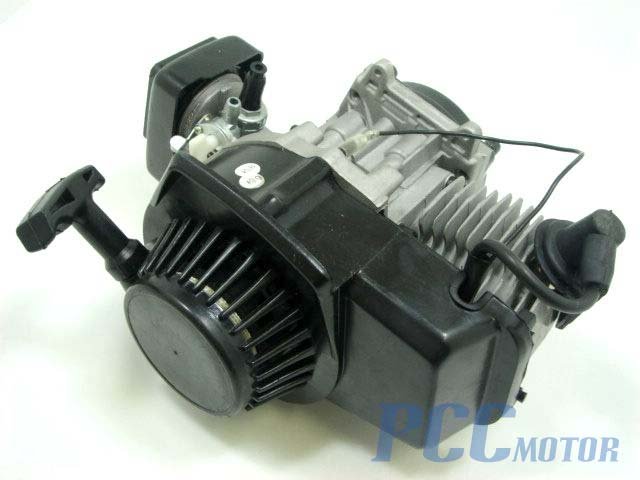In my previous article, we learned how 4 stroke engines work ! This time we will learn about the second type of engine i.e 2 stroke engine. The 2 stroke engine is a type of Internal combustion engine where one power cycle is completed with two strokes of the piston during only one rotation of crankshaft. The first commercial two-stroke engine involving in-cylinder compression is attributed to Scottish engineer Dugald Clerk.
The 2 stroke engine performs all the same steps which are performed by 4 stroke engine – suction, compression, expansion & exhaust; but the 2 stroke engine performs these all steps in only 2 stroke unlike the 4 stroke engine which completes one power cycle in 4 strokes.
You might wanna know How 4 stroke engines work ?
The parts which a 2 stroke engine has –
Piston – In an engine, piston is used to transfer the expanding force of gases to mechanical rotation of crankshaft via a connecting rod. The piston is able to do this because it is secured tightly within cylinder using piston rings to minimize the clearance between cylinder and piston !
Crankshaft – A crankshaft is a part which is able to convert the reciprocating motion to rotational motion.
Connecting rod – A connecting rod transfers motion from a piston to crankshaft which acts as a lever arm.
Counterweight – Counterweight on crankshaft is used to reduce the vibrations due to imbalances in the rotating assembly.
Flywheel – Flywheel is a rotating mechanical device which is used to store energy.
Inlet & Outlet ports – It allows to enter fresh air with fuel & to exit the spent air-fuel mixture from the cylinder.
Spark Plug – A spark plug delivers electric current to the combustion chamber which ignites the air-fuel mixture leading to abrupt expansion of gas.

Working of 2 stroke engine :-
Down Stroke :-
First the piston is moved downside from TDC to BDC to let the fresh air enter into the combustion chamber. The fresh air-fuel mixture gets into the combustion chamber through crankcase. Crankshaft rotation – 180°
Up Stroke :-
Here happens all the magic. The piston is pushed up from BDC to TDC. The fuel-air mixture gets compressed & spark plug ignites the mixture. As the mixture gets expanded, the piston moves down. During up stroke, the inlet port is opened. While this inlet port is opened, the mixture gets sucked inside the crankcase. When the mixture is pushed up into the combustion chamber during the previous up stroke, a partial vacuum is created as no mixture is left behind in the crankcase.This mixture is ready to go into the combustion chamber during down stroke but remains in the crankcase until the piston goes up till TDC. Crankshaft rotation – 360°
Two strokes get completed along with one power cycle.
From the 2nd down stroke onwards the exhaust gases get expelled out from one side while a fresh mixture enters into the combustion chamber simultaneously due to partial vacuum created in the combustion chamber after removal of exhaust gases. This is the beauty of the engine. Both things happen at the same time which makes it a 2 stroke engine.
Know What are the differences, advantages & disadvantages of 4 stroke & 2 stroke engine !

The above pic shows another variant of the 2 stroke engine in which the inlet & outlet ports on the same side. Here, there is no need to open inlet ports intermediately. The cylinder head is designed such that the exhaust port is closed during combustion & opens after combustion. The piston itself closes & opens the port accordingly. The process remains the same, difference here is just the design.
You might have observed a protrusion on the surface of piston. This design helps the exhaust gases to flow through exhaust port easily giving it a direction.
As the crankcase is sucking air-fuel mixture continuously, it is practically impossible to lubricate the piston & connecting rod. Therefore the fuel has to be mixed with oil or lubricant(2%-5%) in 2 stroke engine.
Suggested Article :- How do Wankel engines work ?


4 comments on “How does a 2 stroke engine work ?”
nice too
Thank u satisfied answer
What force pushes the piston back into the compression strock——flywheel?
That would be the case in single cylinder engines. But in case of multi cylinder engines, the other pistons who are undergoing expansion stroke(towards BDC) push the other ones to undergo compression stroke(towards TDC)